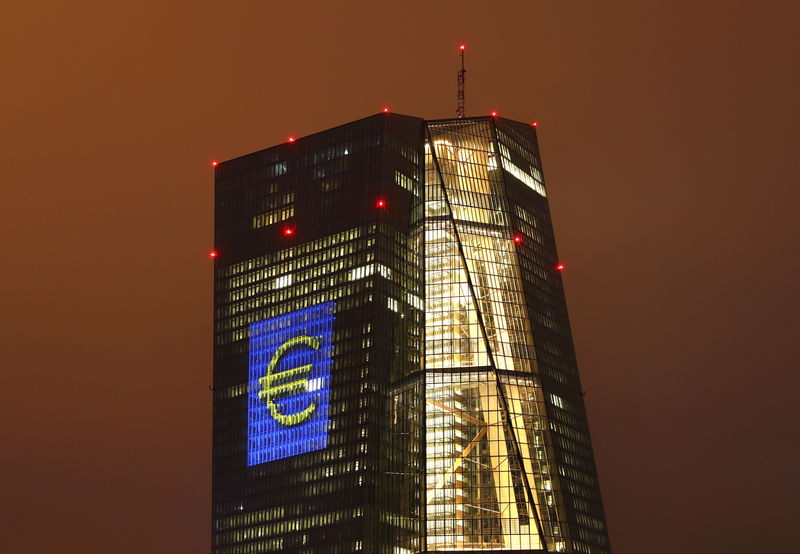Nvidia among investors in xAI’s $20 bln capital raise- Bloomberg
Investing.com - The European Central Bank is tipped to slash borrowing costs three more times this year, bringing its key deposit rate down to 1.5% by the end of 2025, according to analysts at Deutsche Bank (ETR:DBKGn).
But in a note to clients, the brokerage warned that there are "two-sided risks" to this estimate.
In one scenario, the implementation of partially-delayed U.S. tariffs leads to a "growth shock" in the eurozone, persuading the ECB to bring policy rates below the 1.5% level.
Another outcome revolves around broader economic "resilience" stopping an ongoing ECB rate easing cycle before borrowing costs dip to 1.5%.
"Our baseline continues to have the ECB cutting rates by 25 basis points in June, September and December," the analysts wrote.
They added that, due to ructions in stock and bond markets after Trump first announced his punishing tariffs in early April and the possibility that the tariffs could be "disinflationary" in the eurozone, the ECB recent easing cycle may continue and the 1.50% terminal rate might be reached in September.
Last month, the ECB cut interest rates as widely expected in an attempt to boost a eurozone economy that had been struggling even before the unveiling of U.S. President Donald Trump’s sweeping "reciprocal" tariffs.
Policymakers have also noted that both headline and core inflation declined in March, while services sector price gains have also cooled markedly over recent months -- potentially suggested that inflation could settle at around the ECB’s 2% medium-term target on a sustained basis.
The central bank slashed its benchmark deposit rate by 25 basis points to 2.25%, the seventh reduction in a year, while the interest rate on its main refinancing operations fell to 2.40% and its marginal lending facility dropped to 2.65%.
The eurozone economy has been building up some resilience against global shocks, the central bank said, but the outlook for growth has deteriorated owing to rising trade tensions.
Although Trump has postponed his elevated tariffs on the European Union, which includes many eurozone countries, other levies remain in place, such as universal 10% duties and tariffs on items like steel, aluminum and autos.
"Increased uncertainty is likely to reduce confidence among households and firms, and the adverse and volatile market response to the trade tensions is likely to have a tightening impact on financing conditions," the ECB said. "These factors may further weigh on the economic outlook for the euro area."
ECB officials have estimated that growth across the 20 countries that share the euro currency could fall by half a percentage point this year if the tariffs are eventually imposed.
